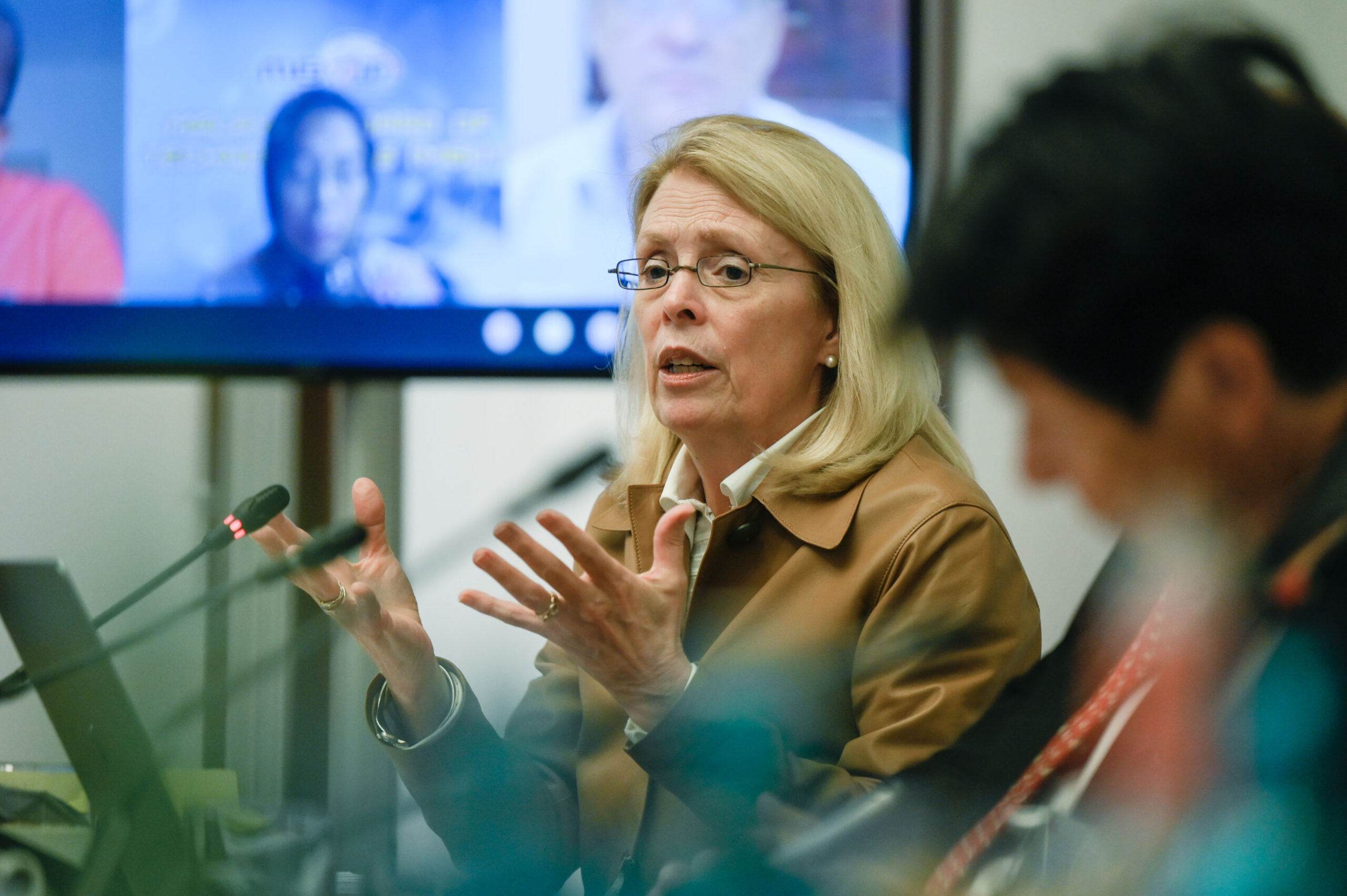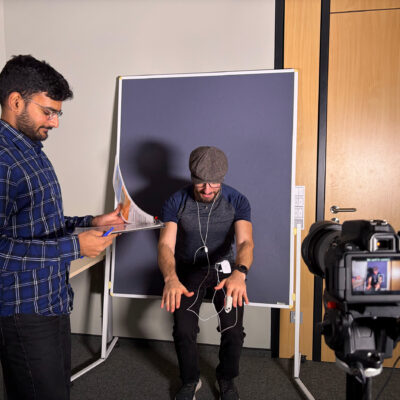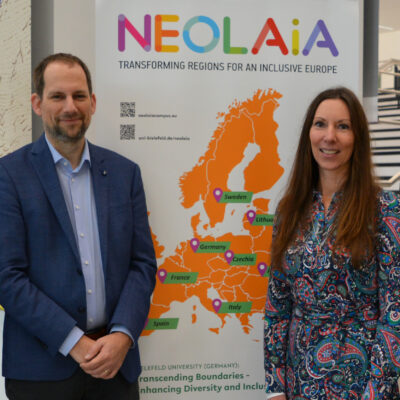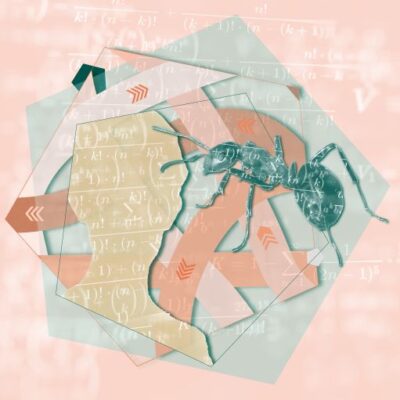For the academic year 2023/24, Professor Dr. Londa Schiebinger will hold the Visiting Gender Studies Professorship at Bielefeld University. The Equal Opportunities Commission of the Medical School OWL and the Working Group for Sex- and Gender-Sensitive Medicine invited the historian of science. For years, the American gender studies professor has been investigating the question why it is important for scientific analyses to consider both biological and social sex (in English, “sex” and “gender”) and how gender categories can be integrated into research and teaching structures. Schiebinger is the John L. Hinds Professor of History of Science at Stanford University and the founding director of Gendered Innovations in Science, Health & Medicine, Engineering, and Environment – a project that highlights and promotes excellence in science and engineering by integrating sex, gender, and intersectional analyses into research designs.
Why should researchers take different categories of gender in account in their work, as well as intersectionality, i.e. other potentially discriminatory factors such as cultural origin, age, or disability?
If researchers do not take these categories into account, the results can be biased and, in the worst case, this can cost human lives. In our first case study on cardiovascular disease, for example, we showed how analyzing biological sex in clinical research has led researchers to understand that that heart disease often presents with different pathophysiology in women than in men, especially in younger adults.
What obstacles do researchers face when integrating sex, gender, and intersectionality into their studies?
The greatest barrier is that researchers in the natural sciences, health and medicine, and engineering typically do not know how to do sophisticated sex and gender analyses—and even fewer still know what intersectionality is. Critical sex and gender analysis was developed in the humanities and social sciences, and has, for the most part, not made its way across disciplinary divides to other parts of the university. This omission is especially problematic in medical schools. To deliver the best care, professors need to incorporate the latest methods, techniques, and findings related to categories of sex, gender, and other factors throughout the curriculum.
Are there institutional requirements regarding the inclusion of gender and intersectional considerations in research projects?
In its most recent funding program, the European Commission is now requiring applicants to integrate a sex, gender, and/or intersectional analysis into their research design – or to justify why it is not relevant in their case. It may not be pertinent in pure mathematics or theoretical physics, but it is for the vast majority of fields. The new EU policy means that all researchers – from humanities scholars to medical scientists and systems engineers –- must include this type of analysis where relevant. The idea is that if taxpayer money is to be used, the research should thus benefit the whole of society. The Gendered Innovations project at Stanford has been working with the European Commission since 2011 to provide methodologies and case studies to support this policy.
What is this project about?
Over the past forty years, my research has focused on three analytically distinct but interwoven components: the history of women’s participation in science, the structure of scientific institutions, and the gendered nature of human knowledge. The third aspect has resulted in the Gendered Innovations project, which aims to provide practical methods and guidelines for scientists from all disciplines to conduct analyses that consider categories of gender and other factors. We developed these materials over multiple years in cooperation with a number of international collaborators, including the European Commission, the U.S. National Science Foundation, and Stanford University. We’ve now expanded into Japan, South Africa, South Korea, and Uruguay; institutes for Gendered Innovations research opened in Korea in 2015 and in Japan in 2022. And we have collaborated with more than 220 experts from Europe, the United States, Canada, and Asia to date. It’s very exciting to see over 40 examples – on stem cells, osteoporosis research in men, artificial intelligence, gendered social robots, and marine research, and much more – on our website that show in very concrete terms how gendered and/or intersectional analyses can lead to new discoveries, insights, and innovations.
Visiting Gender Studies Professorship

© Robert-Bosch-Stiftung / Max Lautenschläger
The Visiting Gender Studies Professorship is a short-term, university-wide guest professorship established in 2012. The aim is to provide structural support for gender research in the respective disciplines in both research and teaching, and to enhance the visibility of this work. “Londa Schiebinger is an excellent, internationally renowned researcher who is not only dedicated to the production of knowledge but is also always thinking about how this knowledge can be structurally implemented in research and teaching,”says Professor Dr Sabine Oertelt-Prigione from the Faculty of Medicine OWL, who advocated for Schiebinger’s visiting professorship. This transfer of knowledge into practice is also of great importance in medicine, so we will certainly benefit greatly from Londa Schiebinger’s expertise in this area during her time here in Bielefeld.”
On the programme of the visiting professorship
During her first stay in Bielefeld this Winter Semester, Londa Schiebinger will deliver a public lecture and participate in a specialist colloquium hosted by the OWL Medical School in cooperation with the Interdisciplinary Center for Gender Studies and the Institute for Interdisciplinary Studies of Science. In addition, there will be discussion rounds and consultations with relevant working groups, such as the Working Group for Sex- and Gender-Sensitive Medicine, and with the Dean’s Office in the area of teaching and research. “During her second stay in June 2024, the focus will be more on strengthening the dialogue between her in the faculties, including students,” says Pia Brocke, the Equal Opportunities Officer at the OWL Medical School. “But we also want other faculties to benefit from the Visiting Gender Studies Professorship. Professor Schiebinger works at the interface between medicine and the humanities. She will help further efforts to integrate gender aspects into research and teaching throughout the university.”





